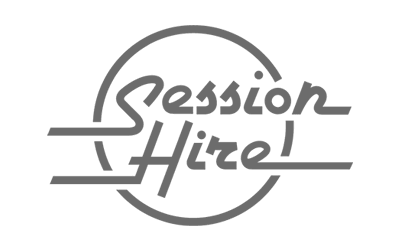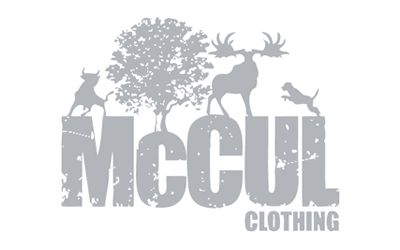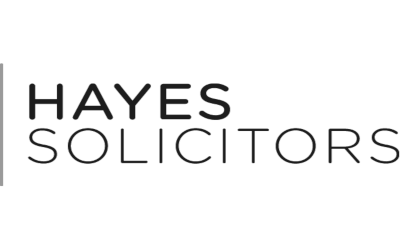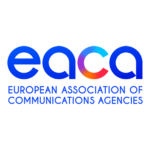Legislation
We asked Laura Fannin of Hayes Solicitors to summarise the relevant legislation which impacts on promotional marketing campaigns in Ireland.
Legislation Governing the marketing and promotion of products in Ireland.
Below is a list of the major legislation which most frequently impacts on sales and marketing promotions in Ireland.
Please note this list is provided for guidance only as it is impossible to give a definitive review of all the legislation concerned unless advice is being sought on a particular promotional mechanic. Further legislation, such as the EC Unfair Terms in Consumer Contracts Regulations, 1995, the Package Holiday and Travel Trade Act 1995 and the Sale of Goods and Supply of Services Act will have implications for specific consumer contracts and promotional mechanics. The list below is an indication of the legislation that most frequently arises in relation to promotional proposals.
Specific legal advice should always be sought in relation to any particular query or promotional mechanic.
The Gaming and Lotteries Act of 1956 prohibits unlicensed lotteries. The Irish courts have taken a wide approach to the interpretation of the concept of a lottery and as a result ‘instant win’ promotions frequently contravene this legislation. If a promotion constitutes a lottery, a permit or a licence will be required to operate the promotion legally.
Failure to comply with the Gaming and Lotteries Acts constitutes a criminal offence. The penalties for breaches of the 1956 Act consist of a fine of the euro equivalent of £100 and/or three months imprisonment.
This Act applies to promotions involving the redemption of coupons, including packet tops or bar codes. It makes a trading stamp scheme unlawful unless it is conducted in accordance with the provisions of the Act. Compliance with the Act is a straightforward matter involving a number of obligations, including publication of a catalogue (or list) of goods offered in exchange for the trading stamps and lodgement of the list with the Minister for Enterprise Trade and Employment. Care should be taken that each obligation in the Act is complied with, as failure to comply with each obligation is a separate offence under the Act. Each offence could result in a fine not exceeding €635 on summary conviction.
Where a promotion requires participants to provide their personal details this legislation will apply to the data obtained. The Data Protection Acts govern the obtaining, processing and use of personal data. The holder of any such data will be considered a Data Controller for the purposes of the Acts and must comply with the provisions of this legislation in their use of the information provided. Under Section 16 of the 1988 Act (as amended) a Data Controller, is required to register with the Office of the Data Protection Commissioner and is subject to a wide range of obligations under the act.
The Data Protection Commissioner may prosecute offences under the Act. The maximum fine on summary conviction of such an offence is set at €3,000 offences may also be prosecuted on indictment and where the maximum penalty is a fine of €100,000. Individual consumers may complain to the Data Protection Commissioner if they consider their rights under the Act have been affected and where they have suffered damage as a result of a breach of the Act they may claim compensation in the Courts.
The advertising on all promotional materials (both hard and soft copy), will be subject to the Misleading Advertising Regulations, 1988 which state that:
“Misleading advertising means any advertising which in any way, including its presentation, deceives or is likely to deceive the persons to whom it is addressed or whom it reaches and which, by reason of this deceptive nature is likely to affect their economic behaviour or which, for those reasons, injures or is likely to injure a competitor”.
If any advertising is considered to be misleading within the terms of the Regulations, the Director of Consumer affairs or “any person” (for example a competitor) may apply to a court for an injunction or damages, which could prevent the promotion from continuing. Persons guilty of an offence under these regulations are liable to prosecution and to a fine not exceeding £1000.
The European Communities (Protection of Consumers in respect of contracts made by means of distance Communication) Regulations, 2001 apply to businesses supplying goods or services to consumers under distance contracts such as online promotions and telephone, mobile or text based promotions. The Regulations contain strict provisions including the provision of minimum information to the consumer, written confirmation of contracts and an entitlement for consumers to unilaterally cancel contracts for a period of up to 3 months. Distance contracts will not be enforceable if they do not comply with the terms of the act. If in breach of these Regulations the supplier is guilty of a criminal offence and is liable to a fine of up to €3000. Employees of any company involved in such an offence may also be found to be personally liable if they have consented to the breach.
These Acts regulate the sale and promotion of alcohol. The Intoxicating Liquor Act aims to address current government concerns in relation to excessive consumption of alcohol and many of its provisions have direct impact on the sale and promotion of alcoholic drinks. The following provisions are particularly important when considering promotional mechanics involving alcoholic drinks:
Section 20 of the act provides:
“A licensee shall not supply intoxicating liquor on the licensed premises at a reduced price during a limited period on any day.”
This has been interpreted as prohibiting “happy hour” type promotional activities. However the guidance notes provided with the Act state that the section is not intended to prohibit retail practices such as “sales” or product promotions over a number of days.
Section 22 of the act envisages further action in relation to the promotion of alcoholic products. It provides that regulations may be made in relation to the following:
(a) prohibiting or restricting a licensee from doing or permitting, for the purposes of promoting the licensee’s business or any event or activity taking place on the licensed premises, anything that is intended or likely to encourage persons on those premises to consume intoxicating liquor to an excessive extent, and
(b) particulars, to be affixed to any container in which intoxicating liquor is sold for consumption off licensed premises, which are adequate to enable the licensee and licensed premises concerned to be identified.”
Regulations are currently being drafted under this section of the Act by the Department of Justice, Equality and Law Reform. The Department has informed us that policy emphasis behind these regulations is the prohibition of ” anything that is intended or likely to encourage persons on the premises to consume intoxicating liquor to an excessive extent” and this principle will be reflected in the forthcoming Regulations. There are a wide range of offences under these Acts, with fines imposed ranging from €300 – €2000. In addition a licensed premises may be temporarily closed by an order from the District Court where numerous or repeated offences are committed under the Act.
This Act states that littering of public places is an offence and will apply to any promotion involving the distribution of leaflets or promotional materials in public places. Where a promotion involves the distribution of leaflets or other promotional material that may lead to littering, promotors should be aware of the requirement to ensure that public places are not littered. Failure to comply with the provisions of the Act is an offence and may result in a maximum fine of €1904.
Competition law seeks to ensure that the market is not distorted by the activities of dominant firms or a number of firms acting in a collusive manner. There are numerous factors which indicate that a brand or undertaking is dominant, including, market share, barriers to entry and the resources of the company under scrutiny.
There are two types of situation where the competition rules will be of significance to promotional activities:
– Where a promotion is run on a particularly dominant brand and
– Where two undertakings engage in an agreement that in some way inhibits normal competition in the market for the product to which the promotion relates.
In both scenarios, how the market is defined will have a significant impact on the extent to which there are anti-competitive effects caused by the promotion. Certain practises may cause competition problems for a one brand and not another according to the size of a company’s market share.
Offences under the Competition Act are considered serious crimes and both individuals and companies convicted of such offences may find themselves subject to severe penalties. The maximum penalties under this Act are five years imprisonment together with €4,000,000 or 10% of the annual turnover of the individual or company convicted of such offences.
The foregoing summarises the primary legislation applicable to promotional activities in Ireland. This summary is provided for information purposes only, and is not intended to constitute legal advice in relation to specific promotional mechanics. Individual promotional mechanics will always require legal approval to ensure that they are operating in compliance with applicable legislation.
It is always advisable to keep abreast of legislative change. Advertising legislation is currently a topical issue, for example, the Health Promotion Unit of the Department is currently preparing a draft bill in relation to the advertising of alcoholic drinks which will to impact the way in which promotions involving alcohol may operate.
Much of the legislation surrounding promotions and marketing is relatively straightforward. However, some legislative measures, or parts thereof, are outdated and promotion companies often find it difficult to comply with more detailed provisions. Although prosecutions are infrequent under some of the older legislation, there are significant consequences to running illegal promotions, in particular;
Contracts which are made for illegal purposes are void and are unlikely to bind either of the parties to the contract. This can cause problems where dissatisfied consumers take legal action or where the promotion involves a contract between promotion companies and clients, handling houses or other third parties for the purposes of running individual promotions.
Where promotions are run in breach of the law there is always the risk of a competitor or a dissatisfied consumer taking legal action to stop the promotion, such as an injunction or a complaint to the Advertising Standards Authority of Ireland or the Office of the Director of Consumer Affairs. Such action can result in considerable negative publicity in addition to losses suffered as a result of a cancelled promotion.
In the current environment companies should be extremely sensitive to both government policy and public perception in relation to public health problems such as tobacco and alcohol consumption. In order to avoid negative publicity it is advisable that you take care to abide by industry standards for the regulation of promotions, such as the APMC code of sales promotion practise.
Finally, promoters should note that promotions companies, their clients, and the directors and employees of both, may be held liable for many of the offences under the legislation above.
This information was provided by Hayes Solicitors who provide consumer and marketing advice to a wide range of Irish and International promotions companies. For information or advice please contact:
Ms. Laura Fannin, Hayes Solicitors, Lavery House, Earlsfort Terrace, Dublin 2
Email: lfannin@hayes-solicitors.ie
Web: https://www.hayes-solicitors.ie
Tel:+ 353 1 6624747










